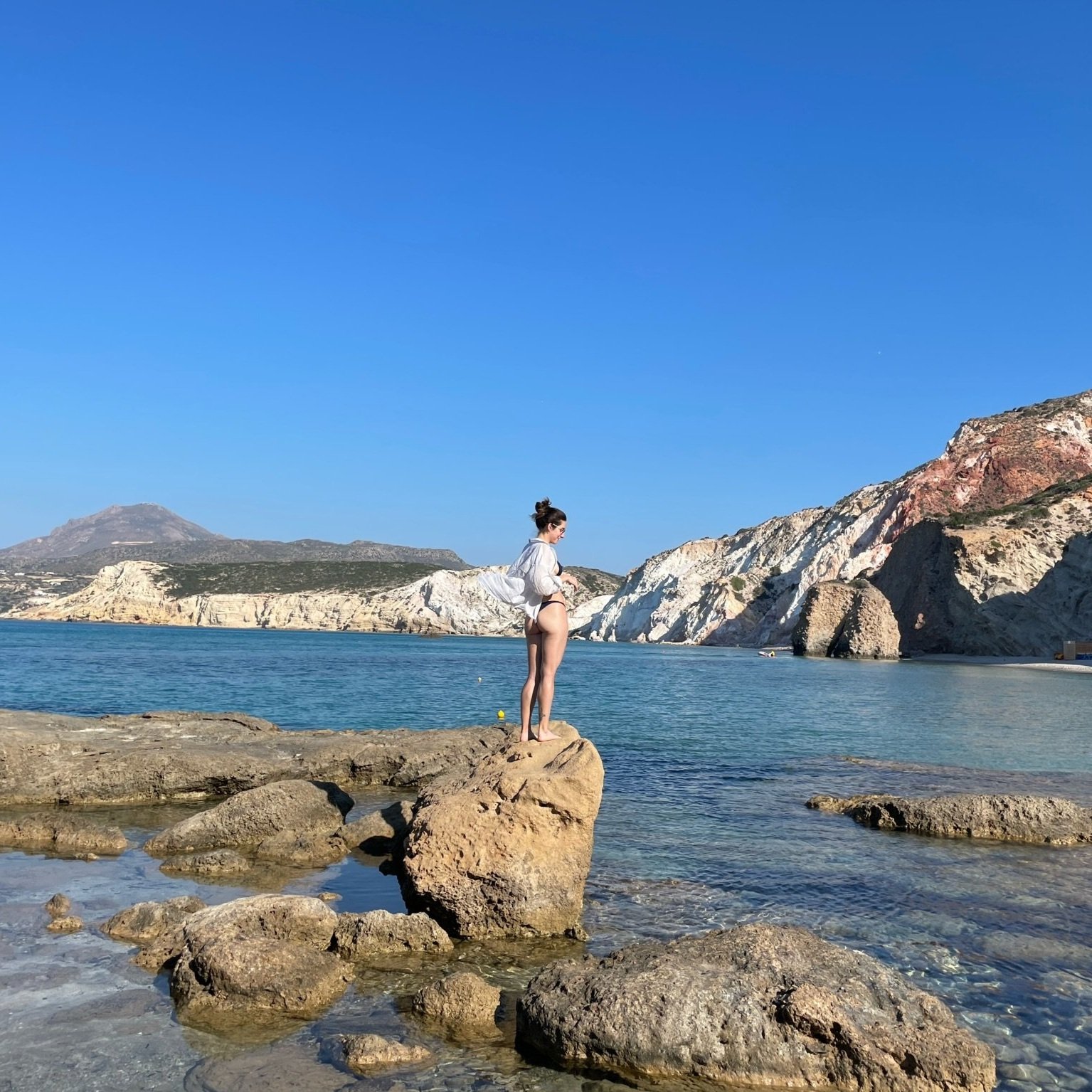Body Dysmorphia & Body Acceptance
Body dysmorphia didn’t hit me until adulthood. As a child, I was lucky that I was taught to view my body in the context of what it could do. I was involved in sports ever since I can remember, became a competitive swimmer at age nine, and competed as such all the way until age eighteen. Of course, I went through puberty during that time and also weathered my fair share of unkind comments about my body. But those comments and the body standards around me always seemed to pale next to the importance of my training. Because swimming was such a big part of my life, and because I was so competitive, the way my body looked was simply a product of all the workouts I was putting it through. If my body had to look a certain way in order to swim as fast as I wanted, then so be it. People could say whatever they wanted, I was proud of my body and all it could do.
But when I ended my swimming career, choosing to pursue other things in college and beyond, I didn’t have that all-consuming goal to fall back on, and society’s ideals started to worm their way into my mind. I went away to school in Southern California, which is possibly worst place to feel sure of one’s appearance, and comments from people started to carry more weight. Friends would ask for fitness advice but caveat their request by saying they didn’t want to actually look as muscular as me. Most of the friends I made were smaller and more petite. I started to wonder if I should change something. Should I look skinnier? More feminine? Delicate?
I started to try to do just that. When I looked in the mirror, all I could see were hard edges so I upped my cardio, lifted less, and ate less.
But after a couple months of that, I started to miss my athleticism. I started to view myself as weak when I couldn’t do the workouts I used to be able to do. Inevitably, I would go back to strength training, circuits, and my normal diet.
I have oscillated between these two ideals for years which meant I never really made any progress in either direction. I could never decide if I should train for aesthetics or for ability?
I would argue that training for aesthetics is much harder - not just physically but also mentally. Just look at body builders. Their whole lives are built around trying to achieve a specific aesthetic. Day in and day out, they do the same workouts, eat the same foods, and constantly analyze themselves in the mirror. They take it to the extreme, but anyone training for aesthetics has to endure the same mental hardship. Watching your body, day after day, waiting for it to change is agonizing and demoralizing.
On the other hand, if you train for ability, your body will become a reflection of what you train for. There’s a reason swimmers get a V-shaped back and tennis players have a stronger arm. Most of the time, this aesthetic might not be what is necessarily viewed as most beautiful, especially for women. But you will have honed your body to be good at something. You will have acquired new skills, and tracking your improvement towards those skills can be insanely rewarding.
Recently, I realized that in the past couple years, I stopped trying to train for aesthetics. I have been focused almost entirely on ability for a good couple years now and it’s put me in an interesting place with my body.
I don’t actually think my body today fits the beauty standard I would have picked for myself. If I were to train solely for aesthetics, I would definitely opt to be thinner with a lot less muscle. But it simply isn’t worth it to me. Somewhere along the line, I decided I like being able to do things so much more. I like being able to climb, lift heavy things, run long distances, ski, jump, and anything else I can think of. That is the trade-off I’ve made.
What’s crazy about this whole journey is that you can most certainly argue that I have been well within the acceptable beauty standard for my whole life. This entire journey took place in a span of 20 pounds. Most people in my life have hardly noticed any changes in my body - it’s all been in my own head. Who knows how many hours I have wasted worrying about if looking skinnier is better than looking athletic? No matter what I picked, this was a terrible use of time.
So I’m at a point where I don’t really think my body is beautiful. But I also don’t think it’s ugly. It doesn’t have to be either one. It is an important part of reaching all my other goals (health is wealth), so I must take care of it, but I also accept that this is what it must look like to live the type of life I want to live. And that will most likely make me feel more beautiful than anything else.
Exploring in Milos. Bikini season is brutal no matter what you look like.
